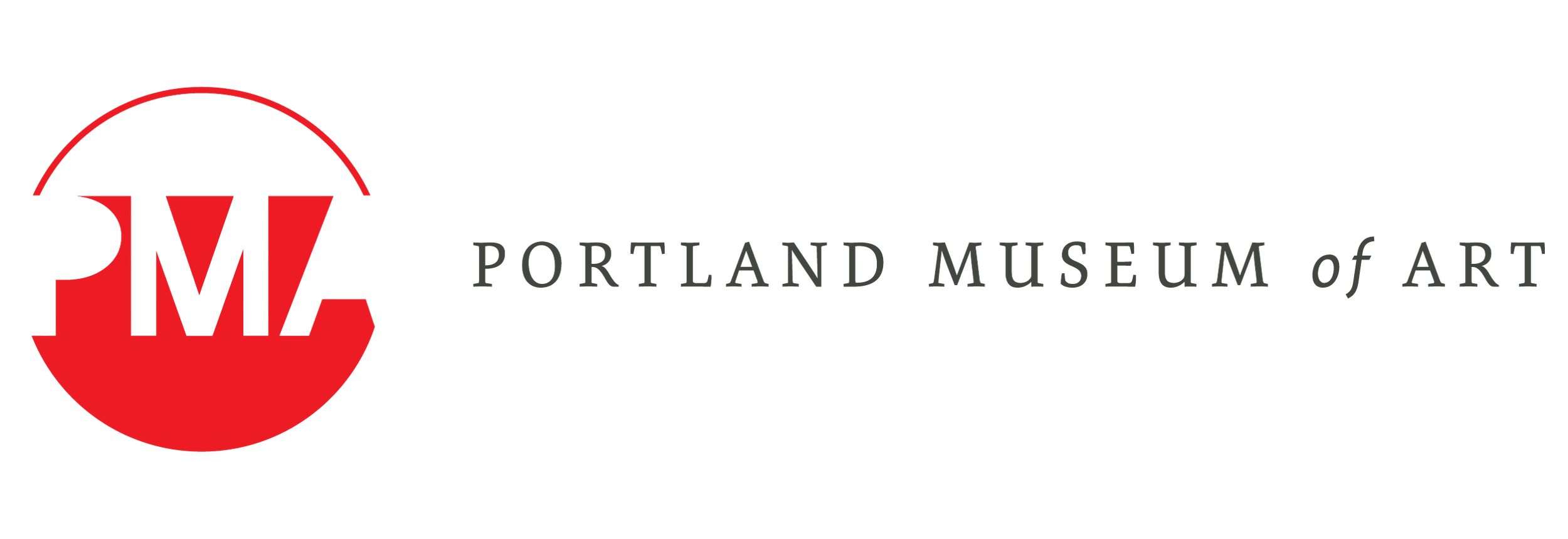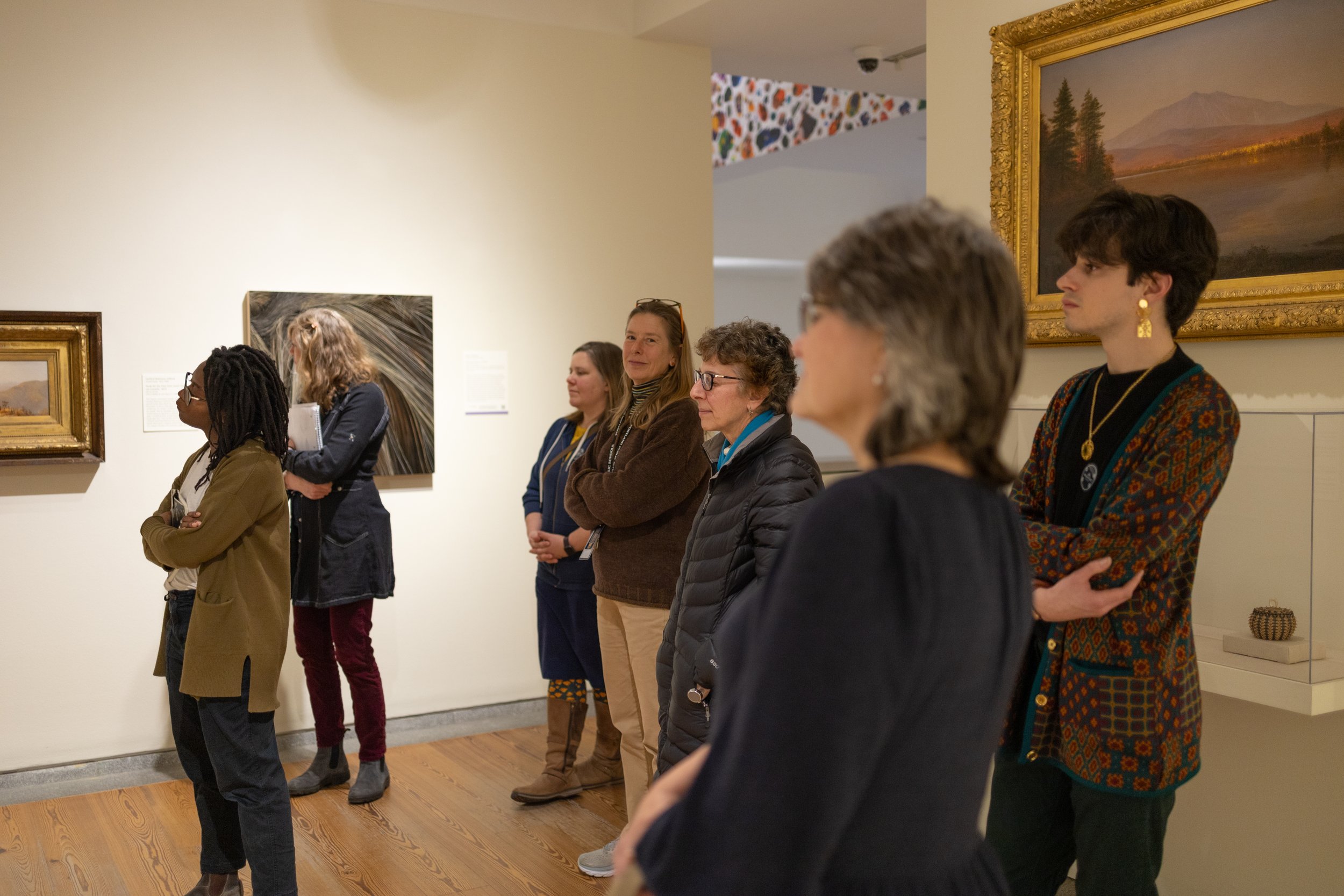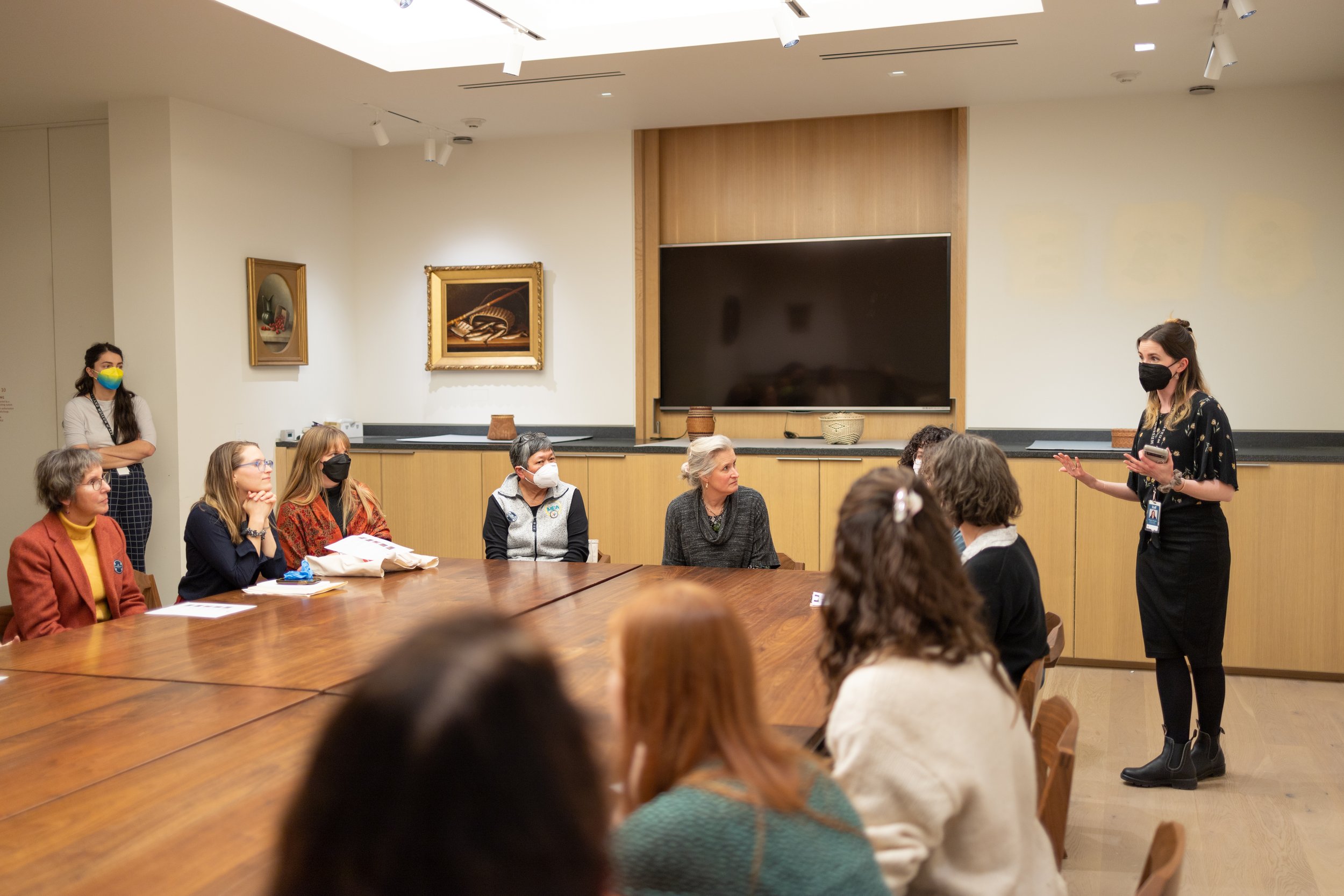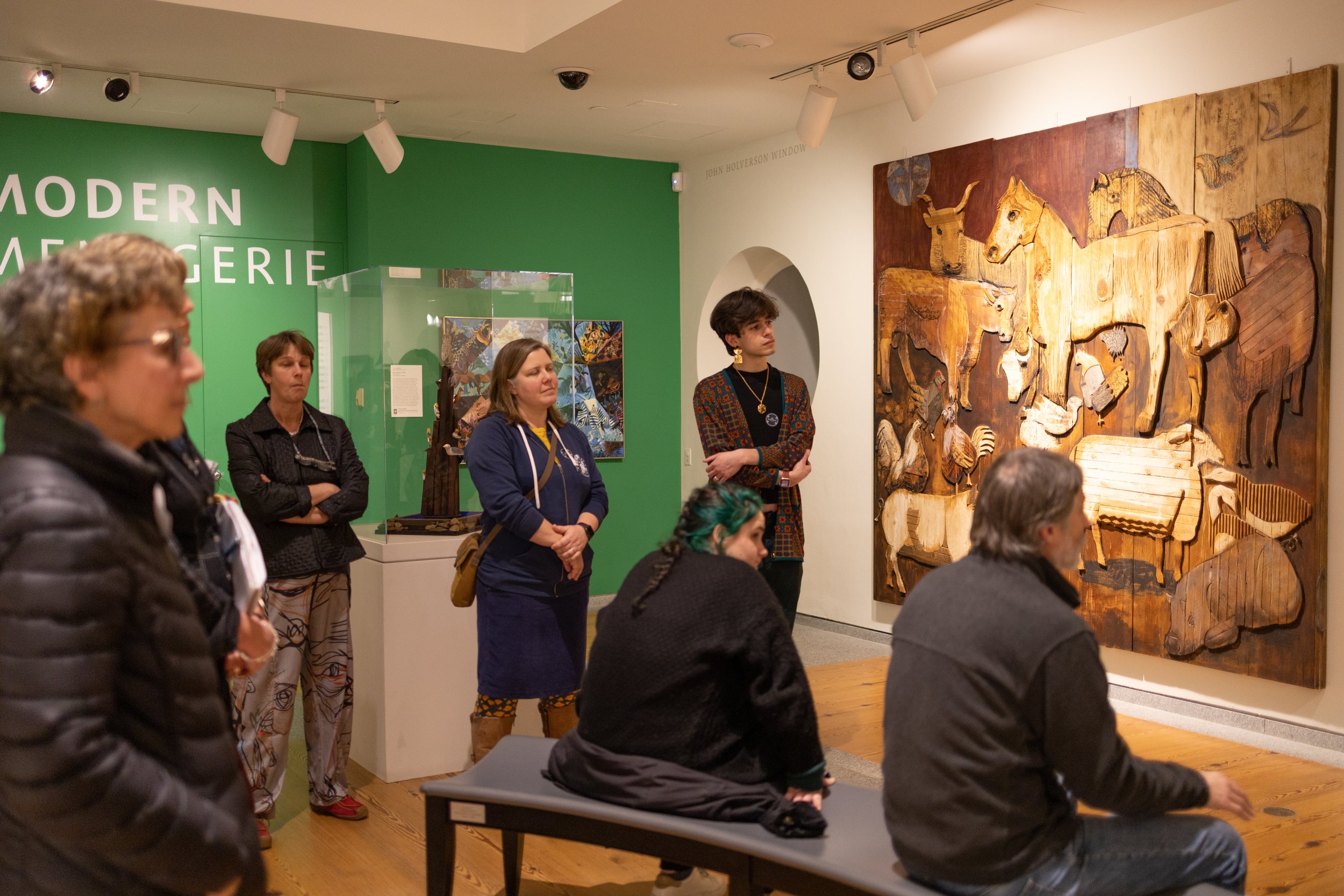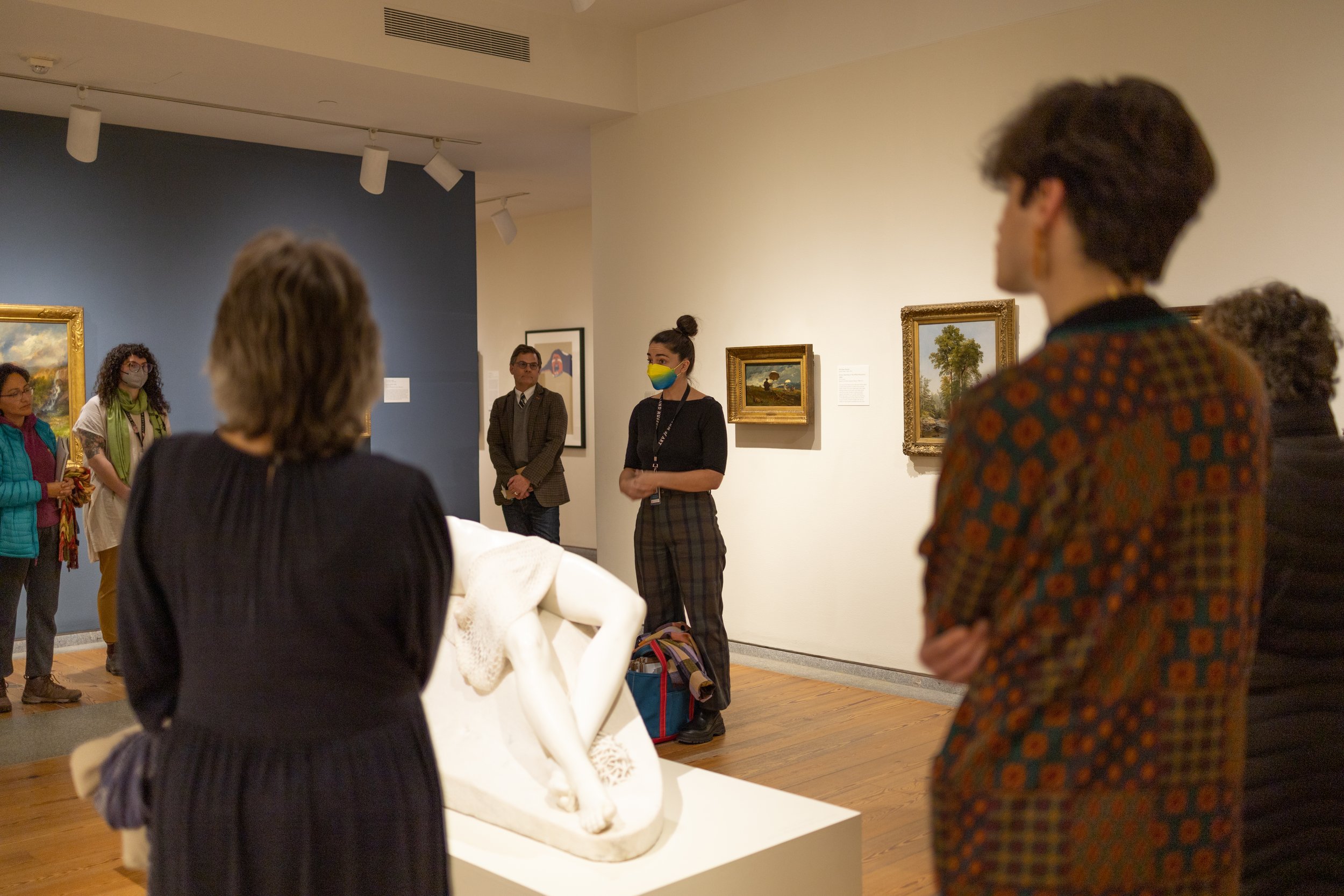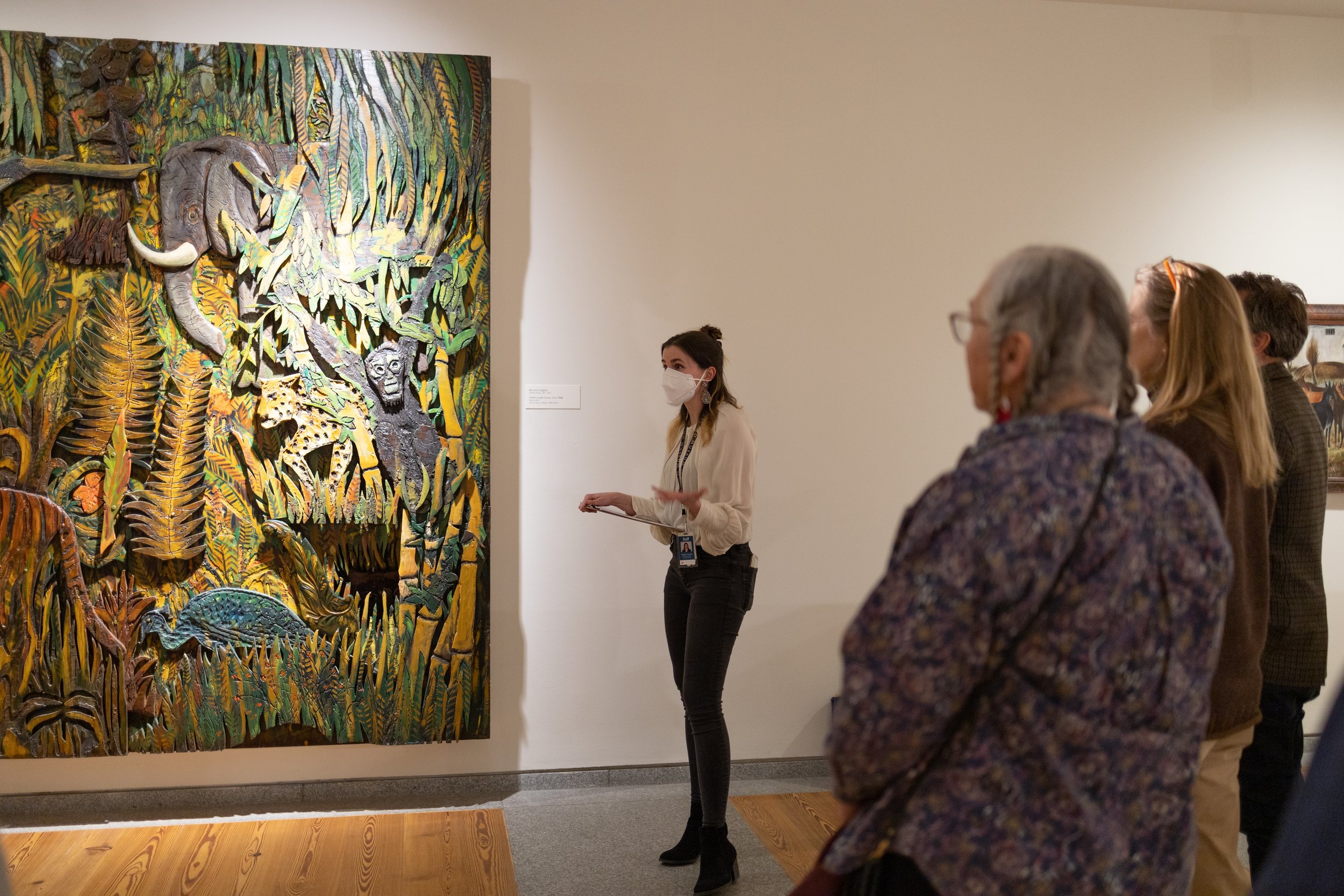A New Era in Wabanaki Studies Education in Maine
HOW DO WE TELL THE STORIES OF WABANAKI CULTURES IN THE CLASSROOM?
In January 2023, the PMA partnered with Portland Public Schools to host the Wabanaki Studies Curriculum launch. The Portland Public Schools’ Wabanaki Studies Curriculum was developed in collaboration with advisors from each of the Wabanaki tribal nations and will debut next year for most PREK-12 grades. For the launch event, more than 400 elementary educators filled the museum over two sessions to learn about the curriculum from those who helped develop it, as well as the resources available to effectively teach it in their classrooms.
“LD 291 was passed over 20 years ago,” shares Fiona Hopper, Social Studies Teacher Leader and Wabanaki Studies Coordinator at Portland Public Schools. “This law mandates the teaching of Wabanaki studies in Maine schools, but since its passage, its implementation has been inconsistent, or in most cases, nonexistent.” That started to change in 2018, when Hopper, alongside advisors from all the Wabanaki tribal nations and other educators in Portland, began developing the Wabanaki Studies curriculum. Together, they led efforts to implement the curriculum as well as professional development for Portland educators. Speaking of her time in the classroom, Hopper continued: “Wabanaki studies allowed my students to focus on something real... It is not the study of abstractions divorced from context—it is based here in this place and in the relationship each and every one of us has with the place that supports our lives.”
“I learned that Wabanaki studies is not a tourist drive through holidays and food and clothing, nor is it the study of the past… It is about understanding the relationship that Wabanaki people have with this place. Understanding this relationship is critical because it allows one to become a better steward of this home and a better neighbor to the people who have inhabited it for over 12,000 years.”
Dr. Darren Ranco, citizen of the Penobscot Nation and Chair of Native American Programs at the University of Maine, was an advisor for developing a curriculum that is not isolated to social studies, but spans subjects to make connections to earth sciences, ecology, life science, and sustainability. “When you see yourself in the curriculum, you’re invested, you achieve more,” says Ranco. “More knowledge leads to better understanding, more empathy and better citizens.”
Requiring schools to teach Wabanaki Studies enables Indigenous students to see their cultures, communities, and histories reflected in their education. Underrepresentation or erasure perpetuates narratives of oppression. Additionally, the Wabanaki Studies Commission states the importance of making it safe to discuss stereotypes, racism, genocide, and other things that make people feel uncomfortable. “This curriculum gets it as right as I’ve seen,” adds Ranco.
"The Wabanaki, the people of the Dawnland, were this place's first scientists and engineers,” shares Brooke Teller, Portland Public Schools PK-12 Science Coordinator. “I am excited for the Portland Public Schools students to know and understand the contributions that indigenous people have made, and continue to make, in our search for understanding and engaging in the world around us."
These Wabanaki Studies Educator Professional Development programs come at time when the PMA is preparing to launch a major reinstallation of the American art collection on the second floor of the Payson Building, Passages in American Art. Made possible through the generosity of the Terra Foundation for American Art, Maine Community Foundation, Wyeth Foundation for American Art, Unum, and the Friends of the Collection, Passages is a fundamental reinterpretation of the collection, platforming multiple voices, revealing new ways of looking at some of the museum’s most beloved works of art, and inviting community members to drive the conversation. By bringing contemporary and historical works together, Passages also aims to spark connections and ideas for future action around the many themes, issues, and histories, including Indigenous perspectives.
“We look forward to continuing to collaborate with teachers and artists about possible avenues for respectful, relationship-based learning around Wabanaki art—past, present and future.”
“This project will help recontextualize our holdings by foregrounding important themes and questions from the very definition of America to ongoing issues and legacies of colonialism, slavery, and climate change,” says Dr. Ramey Mize, Curator of American Art, about Passages. Alongside Chrisitan Adame, Peggy L. Osher Director of Learning and Community Collaboration, he and Mize opened the Wabanaki Studies Educator Professional Development program with an overview of this project and the advisory partners involved in the reinterpretation. One of the partners includes Portland Public Schools, and Adame noted: “It is so important for us to include the PREK-12 education and school system as a part of this project so we can be a much more robust resource [for educators].”
In addition to Portland Public Schools, input from community organizations Akomawt Educational Initiative, Atlantic Black Box, Indigo Arts Alliance, and Gulf of Maine Research Institute was essential in guiding this reinstallation. Through these partnerships, Passages became a responsive installation honoring multiple truths and perspectives. Not only is this a moment to reinterpret the American art collection through a lens that has not been explored before, but it is also intended to help educate students and educators on these topics and support the learning goals of the Wabanaki studies curriculum.
After the auditorium presentation of the Wabanaki studies curriculum, there were opportunities for educators to meet for smaller group discussions about how to teach through art objects in the PMA’s collection. Some educators participated in gallery exercises focused on themes like land, water, people, animals, and environments, using visual art as an anchor for dialogue and activities. Another group met in the Osher Art Study Room to take a closer look at Wabanaki baskets in the PMA collection by artists Barry Dana (Penobscot), Molly Neptune Parker (Passamaquoddy), Fred Tomah (Maliseet), and Jennifer Neptune (Penobscot) to combine close looking with questions guided by themes outlined in the Wabanaki Studies Curriculum including reciprocity, the value of relationships, and cultural continuity.
Following the Wabanaki Studies Curriculum launch and basket study sessions, Mize shared, “It was so powerful to have the opportunity to connect with educators over works of extraordinary meaning and beauty by Wabanaki artists here at the PMA. We look forward to continuing to collaborate with teachers and artists about possible avenues for respectful, relationship-based learning around Wabanaki art—past, present, and future. We hope that the Passages reinstallation will open many new ideas, questions, and points of connection to that end.”
